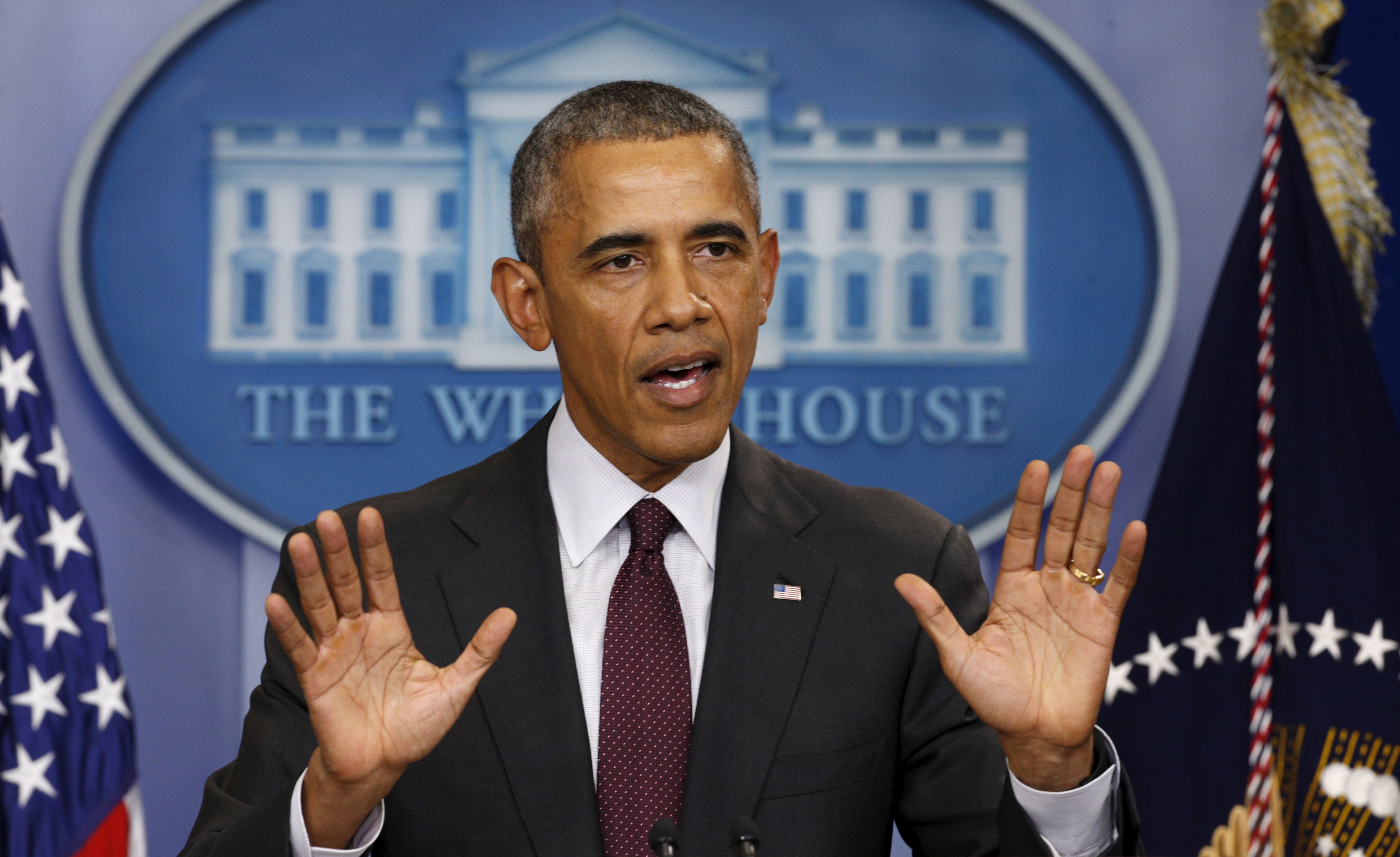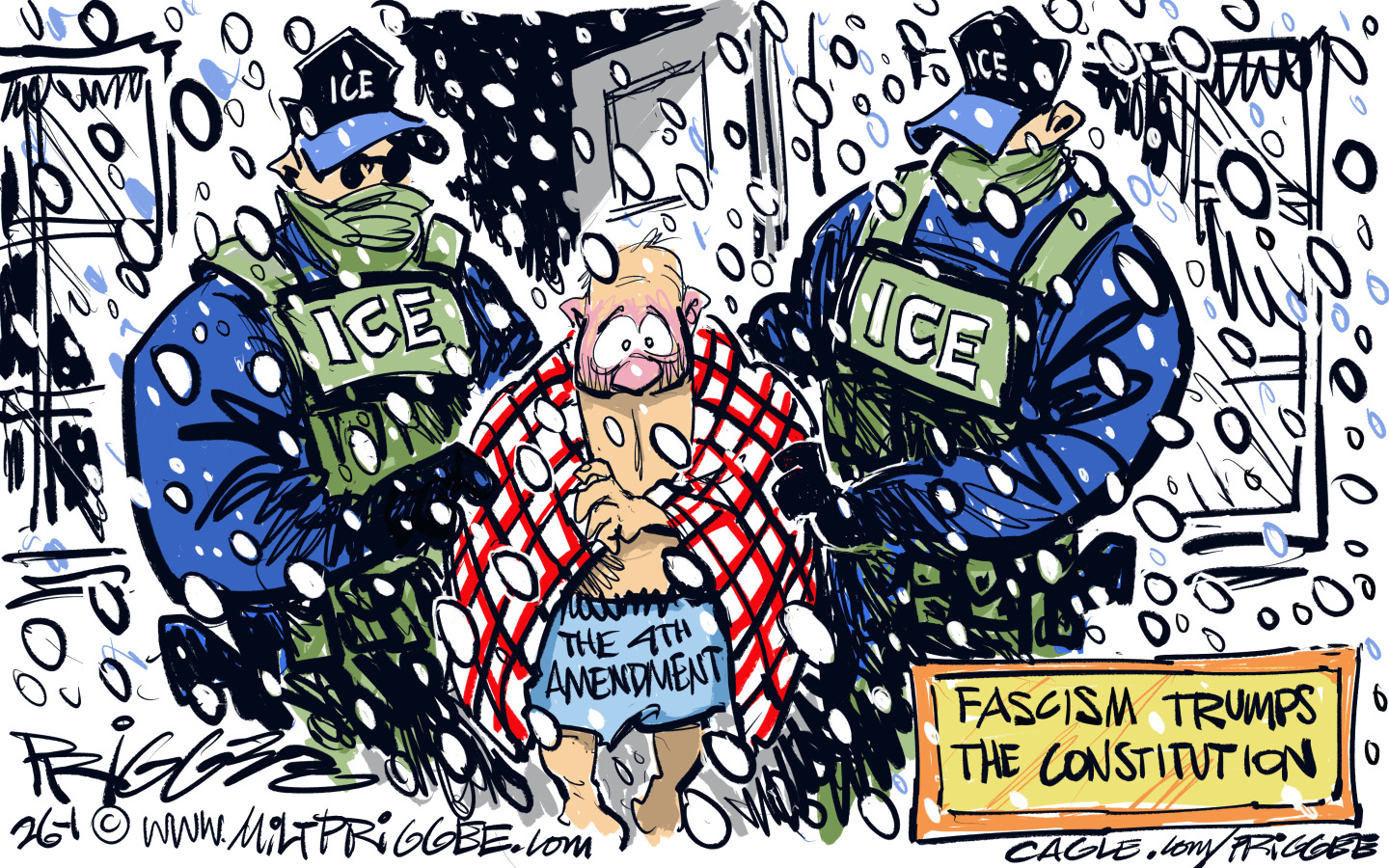Barack Obama, Kevin McCarthy, and why we should politicize everything
If something is important, it's important enough to debate and deliberate


If there's one thing the people who have devoted their lives to politics will tell you, it's that making important matters "political" is so unseemly that they would never consider engaging in such atrocious behavior. No, it's only their opponents, those foul knaves, who would ever stoop so low as to get political. Why, they ask, can't all of us professional politicians, political operatives, political activists, and political reporters just put aside the politics?
In what is surely one of the more memorable instances of this particular form of nonsense, Rep. Kevin McCarthy, who hopes to become speaker of the House, reacted angrily on Wednesday to the reaction he got when he defended the select committee on Benghazi by saying it had brought Hillary Clinton's approval ratings down. "Let's be very clear: Benghazi is not political," he said. "The integrity of [Committee Chairman Rep.] Trey Gowdy, the integrity of the work that has been done has never come into question, and it never should be. Stop playing politics." Perish the thought.
This came less than a week after President Obama, delivering what for him was an angry response to the latest mass shooting, this time in Roseburg, Oregon, said, "somebody, somewhere will comment and say, Obama politicized this issue. Well, this is something we should politicize. It is relevant to our common life together, to the body politic."
The Week
Escape your echo chamber. Get the facts behind the news, plus analysis from multiple perspectives.

Sign up for The Week's Free Newsletters
From our morning news briefing to a weekly Good News Newsletter, get the best of The Week delivered directly to your inbox.
From our morning news briefing to a weekly Good News Newsletter, get the best of The Week delivered directly to your inbox.
Not only is Obama right about politicizing guns, I'd go much farther: We should politicize everything.
Because what is politics? It's the arena where we make collective decisions about what our government is going to do and not do. It's the place where we debate and deliberate, so both leaders and citizens can determine what's important, what they think, and what choices we ought to make.
But much of the time, we use the word almost like a slur. To say that we have made something "political" is to say that it's been drained of substance and meaning to the point where all that's at stake is partisan advantage, that every truth has been turned to a lie and only the most base motivations are at work as everyone serves nothing more than their own lust for power.
Does politics sometimes resemble that picture? It certainly can. But politics is also what we make it, and even at the worst times there are usually important questions at stake.
A free daily email with the biggest news stories of the day – and the best features from TheWeek.com
Let's use the gun issue as an example. Every time there's a mass shooting, gun advocates say, "Now is not the time to politicize this." In other words, let's not translate the events of the world into the political realm, where they might influence the choices we make. Let's not look at how public policy affects people's lives; let's not consider whether we might do things differently; let's not introduce legislation, or point out where the parties stand, or heaven forbid encourage voters to make their choices based on where politicians stand on this issue.
But of course that's exactly what we should do, and when our attention to a particular issue is roused, that's precisely the time to address it through our political processes. After a shooting is precisely the time to politicize the gun issue, just as after a flood it's a good time to make disaster preparedness political so we might save more lives and property the next time.
That isn't to say that in our haste we can't make mistakes, because we can and do. But often, the lack of politics is what keeps problems festering. Politics is how we take isolated events and conditions, like an incident of mass murder, and connect them to something broader so that change can happen.
When second-wave feminists in the 1960s and 1970s proclaimed that "the personal is political," they were telling women that the discrimination and dissatisfaction of their own lives wasn't their burden alone; instead, it was a problem shared by millions, the roots of which reached deep into society and history, and most importantly, could be changed. What labor unions do — and why they're so despised by the political right — is politicize workers, by telling them that the things they don't like about their own workplace are part of larger issues. The problem isn't just that your boss is a jerk, which is something you can't do anything about. It's that you and your co-workers need the bargaining power to change how your boss treats you.
So what's wrong with the Benghazi committee isn't that it's political, it's that it exists in order to create partisan advantage out of nothing. Had Hillary Clinton personally ordered the deaths of those four Americans because she's secretly an Al Qaeda sleeper agent, then there would be nothing wrong with the committee discovering and publicizing that fact, then using it against her. That would be political! But also perfectly worthwhile. When the committee engages in what's essentially a slow-motion show trial, all along denying vociferously that this even has anything to do with Hillary Clinton, the problem isn't that the exercise is political, it's that it's dishonest.
But if something is important, it's important enough to politicize. We should at least admit that, because it's what we're going to do anyway.
Paul Waldman is a senior writer with The American Prospect magazine and a blogger for The Washington Post. His writing has appeared in dozens of newspapers, magazines, and web sites, and he is the author or co-author of four books on media and politics.
-
 31 political cartoons for January 2026
31 political cartoons for January 2026Cartoons Editorial cartoonists take on Donald Trump, ICE, the World Economic Forum in Davos, Greenland and more
-
 Political cartoons for January 31
Political cartoons for January 31Cartoons Saturday's political cartoons include congressional spin, Obamacare subsidies, and more
-
 Syria’s Kurds: abandoned by their US ally
Syria’s Kurds: abandoned by their US allyTalking Point Ahmed al-Sharaa’s lightning offensive against Syrian Kurdistan belies his promise to respect the country’s ethnic minorities
-
 The billionaires’ wealth tax: a catastrophe for California?
The billionaires’ wealth tax: a catastrophe for California?Talking Point Peter Thiel and Larry Page preparing to change state residency
-
 Bari Weiss’ ‘60 Minutes’ scandal is about more than one report
Bari Weiss’ ‘60 Minutes’ scandal is about more than one reportIN THE SPOTLIGHT By blocking an approved segment on a controversial prison holding US deportees in El Salvador, the editor-in-chief of CBS News has become the main story
-
 Has Zohran Mamdani shown the Democrats how to win again?
Has Zohran Mamdani shown the Democrats how to win again?Today’s Big Question New York City mayoral election touted as victory for left-wing populists but moderate centrist wins elsewhere present more complex path for Democratic Party
-
 Millions turn out for anti-Trump ‘No Kings’ rallies
Millions turn out for anti-Trump ‘No Kings’ ralliesSpeed Read An estimated 7 million people participated, 2 million more than at the first ‘No Kings’ protest in June
-
 Ghislaine Maxwell: angling for a Trump pardon
Ghislaine Maxwell: angling for a Trump pardonTalking Point Convicted sex trafficker's testimony could shed new light on president's links to Jeffrey Epstein
-
 The last words and final moments of 40 presidents
The last words and final moments of 40 presidentsThe Explainer Some are eloquent quotes worthy of the holders of the highest office in the nation, and others... aren't
-
 The JFK files: the truth at last?
The JFK files: the truth at last?In The Spotlight More than 64,000 previously classified documents relating the 1963 assassination of John F. Kennedy have been released by the Trump administration
-
 'Seriously, not literally': how should the world take Donald Trump?
'Seriously, not literally': how should the world take Donald Trump?Today's big question White House rhetoric and reality look likely to become increasingly blurred
